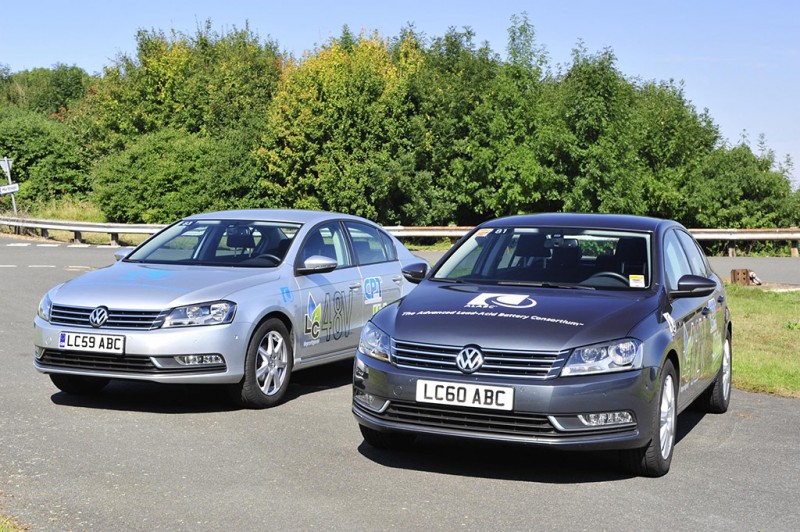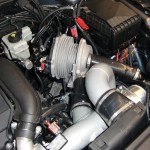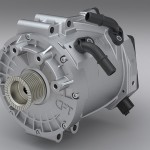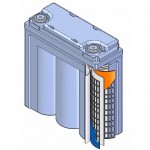Controlled Power Technologies (CPT) and the European Advanced Lead-Acid Battery Consortium (EALABC) have received further recognition for their commercial development of affordable low voltage hybrid vehicle technology – as demonstrated in the low carbon LC Super Hybrid programme. Competing with other outstanding British organisations, they have been chosen by the RSA Environment Awards Forum to be one of 12 UK finalists to be submitted for the prestigious European Business Awards for the Environment (EBAE).
“The UK assessors were impressed by the combination of two extremely innovative technologies providing a much cheaper alternative to current offerings with clear replication potential.”
Said Dr Malcolm Aickin, chair of the RSA Environment Awards Forum, referring to the potential universal application of the technology to the 100 million vehicles per annum that will be produced from 2020 onwards, which would reduce annual CO2 emissions by 100 million tonnes globally.
“The UK finalists are ‘the best of the best’; the most far-sighted, responsible and innovative companies from across the country. Our highly controllable switched reluctance motor-generator technology is applicable to a wide range of vehicles produced by car, bus and truck manufacturers.”
Said Nick Pascoe chief executive of CPT who received the award on behalf of the shareholder-employees and other shareholders backing this SME technology developer.
“We are particularly excited by the potential of 48V hybrids, which significantly reduces CO2 emissions for each vehicle, enabling them to meet the legislated fleet average 95g/km requirement by 2021.
“For the motorist the technology delivers a significant improvement in fuel economy for a premium of less than €1,000. This is significantly less than the additional cost of high voltage hybrids, which typically add €6,000 to €8,000 to the retail price. And it’s less than one-tenth the premium for plug-in hybrid and battery electric vehicles, which can add €12,000 to €15,000.
The LC SuperHybrid programme has enabled us to validate the benefits, including both fuel economy and driver enjoyment, and push the assumed boundaries of intelligent electrification applied to the state of the art in internal combustion engines”.
EALABC project coordinator Allan Cooper said:
“The EALABC is similarly delighted to receive this recognition for its high power density lead-carbon battery breakthrough, which is ideally suited to this new breed of affordable low voltage hybrids. Ironically, the leap forward we’ve achieved in energy storage uses carbon to significantly enhance the performance of lead-acid batteries, which have the additional advantage of already being the most recycled product on the planet.”
The LC Super Hybrid programme demonstrates to the global automotive industry a low cost approach to affordable hybrid vehicles, deploying two major technology breakthroughs. The combination of switched reluctance motor-generators and advanced lead-carbon batteries enables low voltage electrification of the powertrain below the safety critical 60 volt threshold.
By 2020, this low voltage approach could be applied to 50 million new vehicles per annum – essentially enhancing those vehicles already expected to have a basic stop-start capability and encouraging further aggressive engine down-sizing. The increased functionality combined with sophisticated energy management available at 48 volts, compared with 12 volts, would allow global vehicle manufacturers to reduce the carbon footprint of a typical family saloon by 50g of CO2 per kilometre – that’s around 12 tonnes of CO2 saved during the lifetime of the vehicle.
Universal application of the technology to the 100 million vehicles per annum that will be produced from 2020 onwards would reduce annual CO2 emissions by 100 million tonnes globally per annum (50g/km x 20,000km average annual mileage per vehicle x 100 million vehicles).
The 12V and 48V LC Super Hybrid demonstrators represent the culmination of more than a decade of research and development into lead-carbon battery technology by the international ALABC and almost 15 years of research in switched-reluctance motor-generators by CPT – a venture capital spin-out from Visteon, itself originally part of Ford, who started the research in the UK.
Now at a high level of commercial readiness the LC Super Hybrid technology is helping to validate this innovative low voltage approach to electrical boosting and efficient energy recovery by showing vehicle manufacturers the significant fuel economy benefits and CO2 reduction that can be achieved on today’s baseline.
The first vehicles to feature this smart hybridisation of the powertrain, which transforms a downsized internal combustion engine into a highly efficient high performance power unit, are expected to make their showroom debut from 2016 onwards.
Every two years, the EBAE competition takes place to award innovation in the low carbon category. The 12 UK entrants for Europe were selected from the winners and runners up of six of the 13 RSA Accredited award schemes. RSA Accreditation is only achieved by a select number of environmental and sustainable award schemes, who demonstrate the high standards expected by the RSA’s Environment Awards Forum. All 12 UK entrants will now go forward to the European finals, to be held later this year.
Source; Controlled Power Technologies




